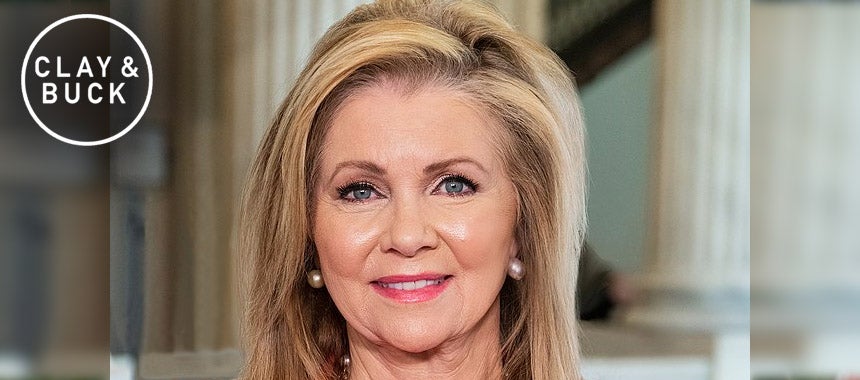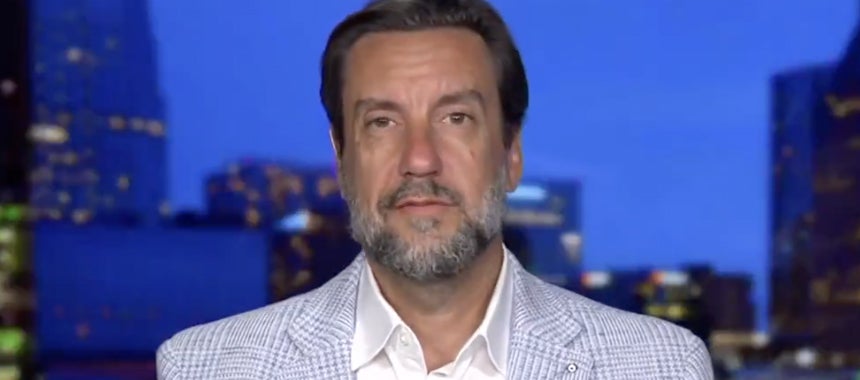Steven Mosher on China and Russia
8 Mar 2022
BUCK: What is China going to do as U.S. sanctions escalate against Russia and as the conflict in Ukraine continues to become more violent and threatens to bring in further outside actors? What is China doing in the midst of all this? We’ve got somebody who’s thought about, written about this a lot. Steven Mosher is president of the Population Research Institute and author of a dozen books on China, including his latest, Bully of Asia: Why China’s Dream Is the New Threat to World Order. Steven, thanks so much for being with us.
MOSHER: It’s good to be with you guys.
BUCK: So, you had a piece in the New York Post just a couple of days ago: With U.S. Distracted by Ukraine, Xi Is Plotting His Own Invasion. We’ve been talking about this possibility for months. How sure are you that is the Chinese strategy in response to Ukraine, and what indicators are we seeing?
 MOSHER: Well, we’re seeing for the last few years, of course, multiple indicators. We have repeated incursions — I think we’re up to a couple thousand incursions — by Chinese fighters and bombers into Taiwan airspace. We have repeated threats from Beijing that if Taipei were to move in the direction of independence, declare independence, that would be a red line that would trigger an invasion, and we see the building up of an amphibious force for the first time in China, which is what they would need to invade Taiwan on the beaches.
MOSHER: Well, we’re seeing for the last few years, of course, multiple indicators. We have repeated incursions — I think we’re up to a couple thousand incursions — by Chinese fighters and bombers into Taiwan airspace. We have repeated threats from Beijing that if Taipei were to move in the direction of independence, declare independence, that would be a red line that would trigger an invasion, and we see the building up of an amphibious force for the first time in China, which is what they would need to invade Taiwan on the beaches.
So, there are all kinds of signs, and actually, Xi Jinping is behind schedule because the emperor of China said he was going to retake Taiwan by 2020. It’s now 2022. It seems to have been — the attack seems to have been — delayed by his releasing a bioweapon on the world killing six million people. So, he’s pushed back his timetable, but make no mistake: He wants to be the great unifier.
Just as Vladimir Putin wants to reestablish the old Russian Empire, so the leader of China wants to take back all of “the lost territories,” first and foremost Taiwan, but also there are lots of territories around China’s periphery that once belonged to the Chinese Empire that I think Xi Jinping would like to get back. Some of them are in Russia, by the way.
CLAY: Would we see a major national response — international response, I should say — akin to what we have seen with Russia invading Ukraine if China invaded Taiwan? Or is China’s position in the global stratosphere of economic relationships so much more significant that there would not be an ability to isolate China and impose sanctions on them?
 MOSHER: Well, that’s a very interesting question, because Xi Jinping is looking at Ukraine as a test case and judging from the reaction of the West, what sort of reaction he’s likely to get if he moves into Taiwan. Now, I would argue that Taiwan has much more strategic significance than Ukraine does, right, ’cause Ukraine is a grain basket. We feel sympathy for the people of Ukraine, but look: 94% of the chips in the world are made in Taiwan.
MOSHER: Well, that’s a very interesting question, because Xi Jinping is looking at Ukraine as a test case and judging from the reaction of the West, what sort of reaction he’s likely to get if he moves into Taiwan. Now, I would argue that Taiwan has much more strategic significance than Ukraine does, right, ’cause Ukraine is a grain basket. We feel sympathy for the people of Ukraine, but look: 94% of the chips in the world are made in Taiwan.
If you lose Taiwan, you lose the vast majority of the chip-manufacturing capability of the world, and China engages in economic warfare. Look at what they’ve done to Australia. They’ve banned 16 different Australian products. So they would not hesitate to use their control of chips to dominate other countries. And then if Taiwan falls, you give the Chinese navy open access to the Pacific.
And the next stop is Hawaii and the West Coast of the United States. Right now, the Chinese navy is hemmed in by what? By South Korea, by Japan, by the island chain down to Taiwan, to the Philippines, and into the South China Sea. If they get Taiwan, they have deep-water ports.
BUCK: We’re speaking to Steven Mosher. He’s president of the Population Research Institute. He’s got a piece, With U.S. Distracted by Ukraine, Xi Is Plotting His Own Invasion, in the New York Post. Steven, how do you think…? I mean, we’re watching right now a contest between a relative superpower with Russia — certainly a regional superpower — against what had been and is an outgunned and outmanned Ukraine.
But Ukraine seems to be, by most analyses — although there’s a lot-of-back-and-forth on this — punching considerably above its weight and causing real problems for the Russian invasion. How do you foresee an actual Chinese invasion of Taiwan going? Is it possible the Taiwanese could also put up a very stiff resistance that might not just complicate things but even thwart China’s ambitions?
MOSHER: Well, I think we ought to complicate things with China right now. I think we ought to clearly arm Taiwan and to the point where it becomes a kind of porcupine and any invading force that comes across the Taiwan Straits would wind up with a bunch of quills in their face and a bunch of ships on the bottom, troop transports on the bottom of the Taiwan Straits.
 So what’s in Taiwan’s favor is that 77% of the people of Taiwan said they would take up arms and fight against the communist Chinese invaders, number one. Number two, they’ve got 90-mile-wide moat — which is a pretty good moat — and amphibious landings are not easy to carry off. We did it in World War II. We’ve had a lot of practice. China has zero practice in that regard. So it could go badly very, very quickly.
So what’s in Taiwan’s favor is that 77% of the people of Taiwan said they would take up arms and fight against the communist Chinese invaders, number one. Number two, they’ve got 90-mile-wide moat — which is a pretty good moat — and amphibious landings are not easy to carry off. We did it in World War II. We’ve had a lot of practice. China has zero practice in that regard. So it could go badly very, very quickly.
So I think those things are weighing in Taiwan’s favor. Against that, of course, you’d have to say, as you pointed out, China has a population 10 times that of Russia. It has an economy 10 times that of Russia. It has a much larger navy. So that weighs in China’s favor. But if things go badly for Putin — and I kind of suspect they will, that he’s going to reach some sort of compromise; withdraw his troops — then Taiwan is going to be safe for some years to come.
Make no mistake: Xi Jinping has much grander ambitions than Putin does. I mean, Putin wants to be the reincarnation of Peter the Great. He wants to reestablish greater Russia, you know, striding ruthlessly over greater Russia’s imperial domains. But Xi Jinping, like Chinese emperors past, is pursuing a much more grandiose vision. He wants to rule over “all under heaven.” That’s what “tianxia” is, which is how you say it in Chinese. “All under heaven” means literally everything.
So he doesn’t want… He won’t be satisfied with just Taiwan. He wants to extend his reach throughout Asia. And I wouldn’t be surprised, now that Putin is the supplicant in the relationship — now that Putin and Russia are the junior partner in the relationship with China — that he wouldn’t want to encroach on Russia at some point as well. So Putin ought to be careful. In dealing with Xi, his frenemy, right — his frenemy, friend or enemy — can switch from day to day. He has to be very careful because China has global ambitions.
CLAY: Steven, would we commit troops, actual boots on the ground troops to defend Taiwan in your opinion, because we have the “strategic” ambiguity policy, which is constantly being sort of hemmed and hawed on. We have never really said, and if we did, would South Korea, would Japan, would Australia, with any European countries, and how quickly could we get there in the event of an invasion? Kind of take me into China begins the invasion and the United States does what?
MOSHER: Well, I wrote a book about this called China Attacks back 20 years ago, and (chuckes) of course it was a novel. But I sort of imagine how the attack would take place and how we might get involved. The best way to defend against a Chinese invasion of Taiwan is simply to put the Seventh Fleet in the way, have the Seventh Fleet patrolling the Taiwan Straits.

That’s what we did in the Offshore Islands Crises in 1958 under President Eisenhower, a former general who knew what he was doing. He was asked about an invasion of Taiwan, and he said, “Any invasion of Taiwan will have to run over the Seventh Fleet,” and it never happened. Australia and Japan have both said that they would distribute to the defense of Taiwan. So there’s already a kind of alliance forming, which has upset China.
China’s foreign minister just said yesterday that he’s very upset about the fact that the U.S. seems to be creating a NATO in Asia. Well, we’re not creating a NATO in Asia. My goodness! The Chinese Communist Party is creating a NATO in Asia by being constantly aggressive against its near neighbors, forcing them — countries like India and Japan and Australia — to join together and ask us for help. So they’re forging the alliance that they claim to be threatened by.
BUCK: Steven Mosher. Thank you so much. His piece is up on ClayAndBuck.com about how Xi Jinping is preparing for his own invasion as we’re all focused on Ukraine. Steven, appreciate the expertise. Thanks for being with us.
MOSHER: Good to talk to you.
Recent Stories

Michele Tafoya Reacts to ICE Shooting in Minneapolis
Will she run for senate from her home state? C&B ask her.

Leftist Protester Rams Car Into ICE Agents in Minneapolis Riot -- Fatally Shot in Self-Defense!
Clay and Buck cover the breaking news as it happened.

Marsha Blackburn's Take on Minnesota, Venezuela, Greenland and More
Senator Blackburn reacts to a bunch of big, breaking stories.







